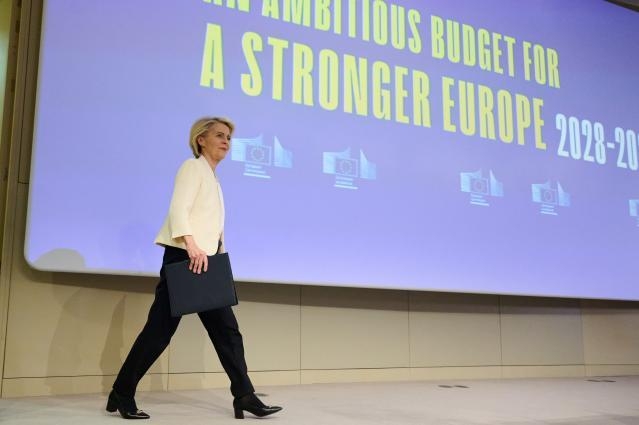European Commission unveils proposal for the next Multiannual Financial Framework (2028-2034) 17/07/2025

On July 16th, the European Commission announced the proposal of a central EU budget of €1.816 trillion for the seven-year period from 2028 until 2034, an increase compared with the current budget that has run from 2021: from 1.1% to 1.26% of the EU’s gross national income.
The new Multiannual Financial Framework (MFF) proposed by the European Commission emphasizes greater flexibility to enable swift responses to unexpected challenges and evolving policy priorities, while simplifying and harmonizing EU financial programs to make funding more accessible for citizens and businesses. It introduces tailored support through National and Regional Partnership Plans, ensuring targeted investments and reforms that enhance economic, social, and territorial cohesion. The framework also aims to boost Europe’s competitiveness by strengthening supply chains, scaling innovation, and advancing leadership in clean and smart technologies. Additionally, it proposes a balanced mix of new own resources to secure adequate funding for EU priorities without overburdening national budgets.
Overall, the proposal is designed to align EU spending with strategic political goals, delivering results beyond the reach of individual national budgets.
The plan now enters a negotiation phase, during which national governments and the European Parliament must unanimously approve the final budget. Many member states are expected to push back against the size of the proposal or demand changes in spending priorities.
Manuel Heitor about MFF (2028-2034)
Manuel Heitor, chair and lead author of the report Align, act, accelerate – Research, technology and innovation to boost European competitiveness, reacted to this announcement:
«The initial version for the MFF (2028-34) represents an excellent attempt to promote the discussion over next 12 to 18 months in Europe about our collective future.
It considers a significant increase of the overall budget and confirms the existence of a "stand alone" FP10, although many details still need to be clarified.
It considers a significant increase for the budget of the framework program for research and innovation, 175 billion for FP10, though not as much as we recommended (ie, 220 billion) and it could end up being lower, following the discussion 7 years ago for the preparation of the current FP9 (which started with 120 billion and end up with 96 billion, which was further reduced to below 90 billion).
It also confirms the support of Marie Sklodowska-Curie Actions (MSCA), although the need for its enlargement and inclusion of a "choose Europe" program to foster research careers and increase the quality of jobs, notably in research and innovation, is not explicitly described yet.
It should be noted that details are not officially known, but leaked documents include a few unacceptable details, including a new governance for ERC in a way that will negatively affect the performance of this unique European program.
The details for the "widening program" and the promised revised "choesion policy" are not known yet.
In addition, the need of a fully independent governance for FP10, expanding the excellent experience with ERC should be guaranteed, as discussed in our report.
The current documents are also very vague about the defense and space program, although there is an extremely positive increase in the related budget. Space research and innovation will be critical for the future of Europe and its collective resilience.
A similar comment about "global Europe", which will be absolutely critical for Europe. Details are not known, although the increased budget is a good sign.
I should also note that the document released today also includes a very positive package of "New European Own resources", which will be critical for the future of Europe. It is known that this package is very controversial among many leaders and political movements in Europe, but it will be the only way to further increase public investment throughout Europe. That is a must and, personally, I would like to see an increased and expanded set of "Eu Own resources", also to foster innovation across many areas.»



